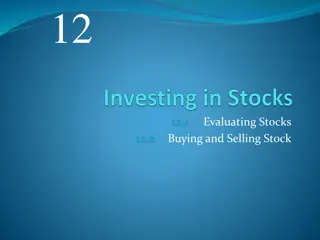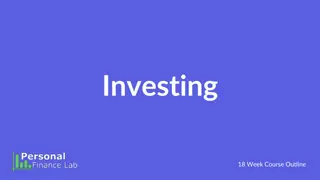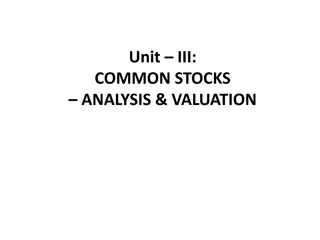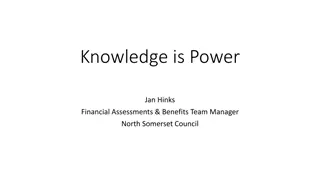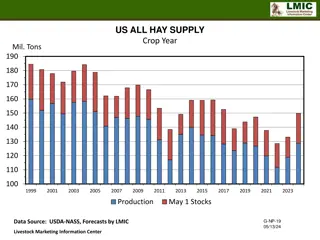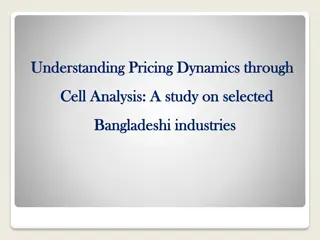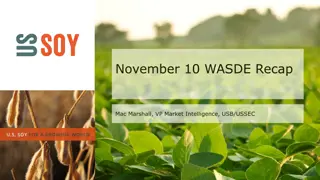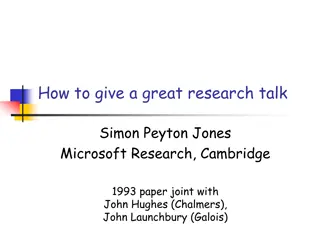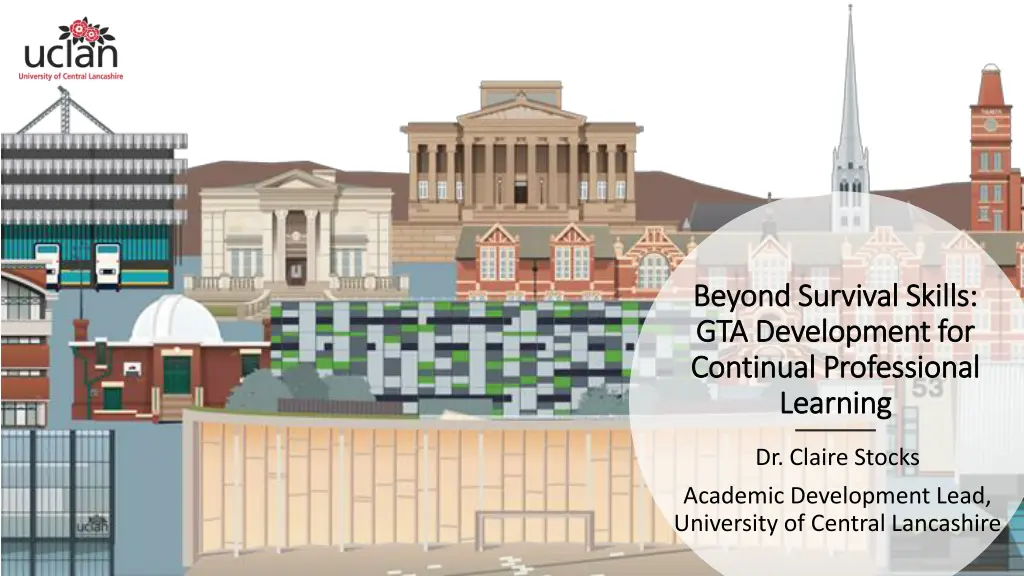
Developing Novice Academics Towards Continual Professional Learning
Explore the preparation of doctoral students for teaching roles, instilling a disposition towards continual professional learning. Addressing uncertainties and anxieties, this approach aims to equip academics with the ability to navigate a changing world effectively.
Download Presentation

Please find below an Image/Link to download the presentation.
The content on the website is provided AS IS for your information and personal use only. It may not be sold, licensed, or shared on other websites without obtaining consent from the author. If you encounter any issues during the download, it is possible that the publisher has removed the file from their server.
You are allowed to download the files provided on this website for personal or commercial use, subject to the condition that they are used lawfully. All files are the property of their respective owners.
The content on the website is provided AS IS for your information and personal use only. It may not be sold, licensed, or shared on other websites without obtaining consent from the author.
E N D
Presentation Transcript
Beyond Survival Skills: Beyond Survival Skills: GTA Development for GTA Development for Continual Professional Continual Professional Learning Learning Dr. Claire Stocks Academic Development Lead, University of Central Lancashire
We would want to inculcate a disposition towards continual professional learning/development in novice academics because 1. We want to model appropriate conceptions of knowledge and learning. We want to support them to become effective professional academics. We want to equip academics with the ability and disposition to continue to develop their practice. Underpinning Underpinning assumptions assumptions 2. 3. 4. We live in times of unpredictable and constant change we need to find ways to prepare doctoral students to develop in such contexts.
Learning for and in uncertainty (Barnett) Learning for and in uncertainty (Barnett) This is a world that is radically unknowable: even though we may make modest gains here and there, our ignorance expands in all directions [ .] Alongside this uncertainty arises another form of uncertainty, as we have seen. It is a more personal form of uncertainty, the uncertainty that arises out of a personal sense that we could never hope satisfactorily even to describe the world, let alone act with assuredness in it (Barnett, 2012: 68) learning for uncertainty is here a matter of learning to live with uncertainty. It is a form of learning that sets out not to dissolve anxiety for it recognizes that is not feasible but that sets out to provide the human wherewithal to live with anxiety (ibid: 69) Learning for an unknown future cannot be accomplished by the acquisition of either knowledge or skills [ .] For what is in question in a situation of supercomplexity is neither knowledge nor skills but being. (ibid: 76) The pedagogic task is of encouraging forward a form of human being that is not paralysed into inaction, but can act purposively and judiciously (ibid)
How do we prepare doctoral students to teach? Shift in focus Shift in focus
How do we prepare doctoral students to teach? Shift in focus Shift in focus How do we prepare doctoral students to learn from their teaching, and instill a disposition towards continual professional learning (CPL)?
Considerations Considerations The students were being prepared to claim AFHEA They would have to give a presentation as part of their claim They would (generally) be applying for academic jobs in the near-ish future They were relatively time-poor and needed development to be relevant, timely and impactful They would typically be inexperienced and anxious about teaching.
Outline of the Outline of the GTA scheme GTA scheme
a continuous process of learning and reflection, supported by colleagues, with the intention of getting things done (McGill and Beaty, 1999: 21) What is Action What is Action Learning? Learning?
Action Learning Cycle Action Learning Cycle Presentation of challenge/problem Active listening Reflection and openness to challenge Questionning to support reflection/learning Respect for different contexts Reporting back of outcome Mentoring/coaching skills Reading relevant lit and theory to inform action and reporting Identification of and commitment to course of action
Action Learning Cyclewith some added Action Learning Cycle with some added GROW GROW GOAL Presentation of challenge/problem Reflection and openness to challenge REALITY Reporting back of outcome Identification of and commitment to course of action OPTIONS WAY FORWARD
Benefits of action learning Benefits of action learning Active participation of doctoral students in their own development, and that of peers helps to develop agency Development of a range of teaching/employability/personal skills, especially if coaching is built in Learning by application in an authentic context Provision of a model and tools for CPL Encouraging of a disposition towards CPL and a capacity to go on learning (thoughtfulness, resilience, criticality, reflection ) unexamined common sense is a notoriously unreliable guide to action (Stephen Brookfield, 1995: 4)
References References Barnett, Ronald (2012) Learning for an unknown future , Higher Education Research and Development, 31:1, 65-77. Brookfield, Stephen (1995) Becoming a critically reflective teacher. San Francisco, Josey-Bass. McGill, I. and L. Beaty (1999) Action Learning: A guide for professional, management and educational development. London: Kogan Page.


